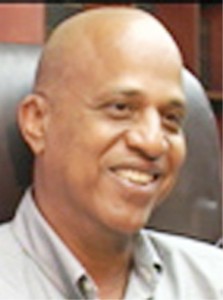– to meet again after report submitted
Caricom Heads of Government have fully endorsed the recent formation of a College of Regulators assigned to determine the full scope and location of the assets and liabilities of the CL Financial Group, in the wake of the financial crisis in the region.
In just over a month, the region has witnessed the Trinidad and Tobago government take control of some CL Financial subsidiaries following liquidity problems, with the Patrick Manning administration providing the liquidity to support any strain on Clico Trinidad, backed by assets of CL Financial; in Antigua, regulators seized Texas billionaire Allen Stanford’s banks and companies amidst fraud charges; while closer to home, two weeks ago the Guyana Government moved to the court to seek to place Clico (Guyana) under judicial management, after the Bahamian Supreme Court ordered the liquidation of Clico (Bahamas). Clico (Bahamas) held 53% of the assets of the Guyana affiliate at the end of 2007.

According to a special statement on the global financial crisis attached to the communiqué issued at the end of the 20th Inter-Sessional Meeting of the Conference of Caricom Heads of Government in Belize, the heads took the position that CL Financial Group’s liquidity problem is a regional problem which warrants a regional solution and agreed to collaborate in the search for a fair and favourable resolution. To this end, they have decided that as soon as the College of Regulators has completed its task, they will meet immediately to consider the report and to take the necessary action in the interest of all stakeholders.
The Heads’ decision was taken based on the significant implications that the financial problems posed by the CL Financial Group and the Stanford Group of Companies could have for hundreds of thousands of policy-holders, depositors and investors in the region.
On the problems posed by the Stanford Group of Companies, they acknowledged the swift action taken by Organisation of Eastern Caribbean States (OECS) members and the strong efforts of the Antiguan government to have the US Securities Exchange Commission (SEC) release part of the assets of the Stanford International Bank (SIB) that had been frozen pending investigations.
“The experiences relating to the CL Financial Group and the Stanford Group of Companies have demonstrated the need for strengthening the regional regulatory framework, particularly in the non-bank financial sector and more effective cross-border supervision of Pan-Caribbean companies,” the statement said. Further, it was noted that the impact of the worsening crisis on the region’s productive sectors-such as tourism, primary commodities and construction-when coupled with the decrease in remittances and foreign investment, results in either” very low or negative growth and increased unemployment in many Caribbean economies.“
To mitigate the situation, the statement said Caribbean governments have taken into account the needs of the most vulnerable and have adopted a number of measures partly supported by regional and international financial institutions. “It remains a reality, nevertheless, that many Caribbean countries are already highly indebted and all are currently faced with declining revenues,” it added.
The Heads of Government stressed that the current global financial crisis clearly illustrates the fundamental deficiencies in the international financial architecture and the need for urgent and comprehensive reform in a manner that responds to the realities of the globalized economy and the interests of not only the developed, but more importantly, the developing economies.
In this context, they agreed that the views of the region would be represented at every relevant forum, including the upcoming G20 Summit on April 2, in London. They also agreed to participate at the highest level at the United Nations Conference on the “World Financial and Economic Crisis and its Impact on Development” to be held on June 1 to 4.
Meanwhile, at a press conference following the conclusion of the meeting, Prime Minister of Belize Dean Barrow announced that Caricom will seek greater access to funds from the international lending agencies to cushion the effects on its members’ economies, as individual responses have not been good enough.
“The crisis will get worse before it gets better,” Caricom Chairman Barrow warned. “There is an urgent need for additional funds for the region to cope with the financial crisis,” he said, adding that the CSME is the platform where the region would face the challenges.
Barrow pointed out that the situation regarding CL Financial and the Stanford Group of Companies fully engaged the meeting of the Heads of Government and he emphasised that that the region would be pooling its resources to deal with the fallout from the crisis. The meeting, he added, received a report on the stimulus packages rolled out by individual member states, but he acknowledged that “what was done is not good enough.”
Also at the press conference were Manning, Prime Minister of St Kitts and Nevis Dr Denzil Douglas and Caricom Secretary General Edwin Carrington.

